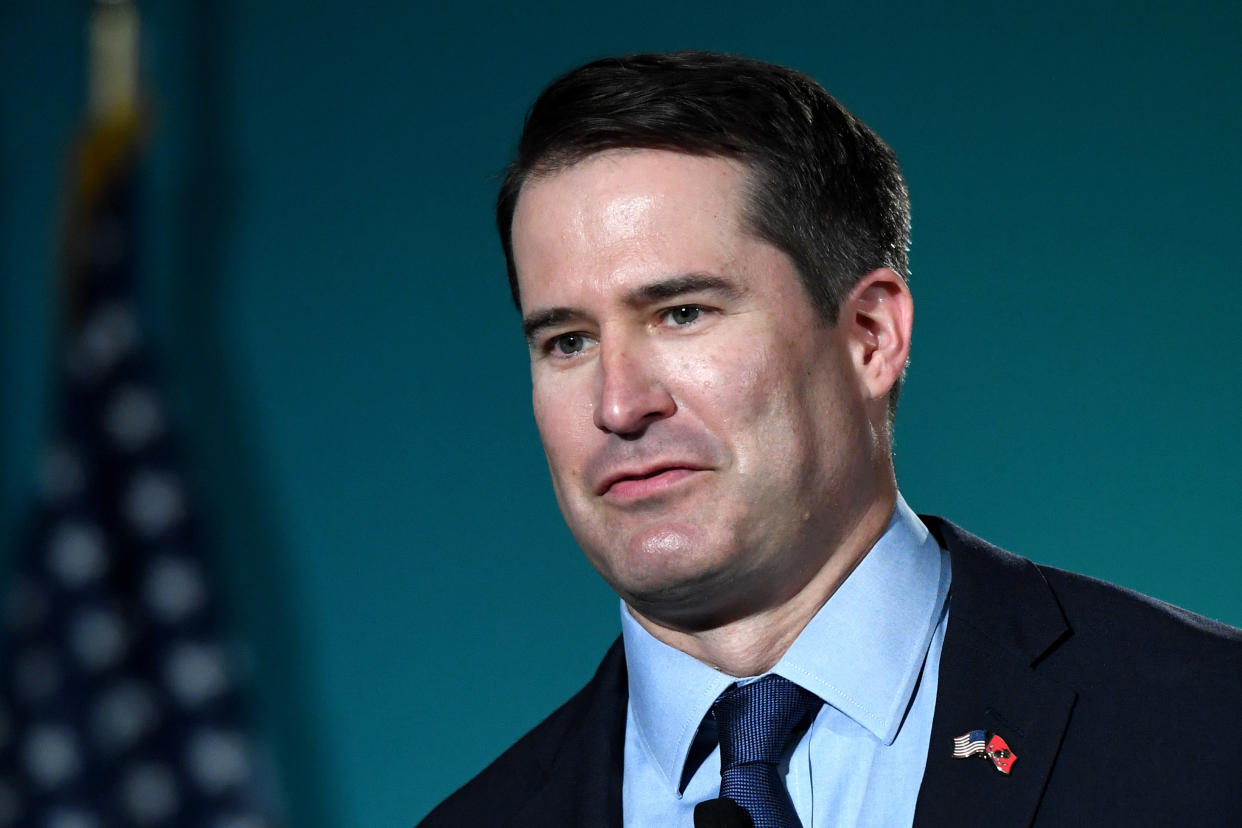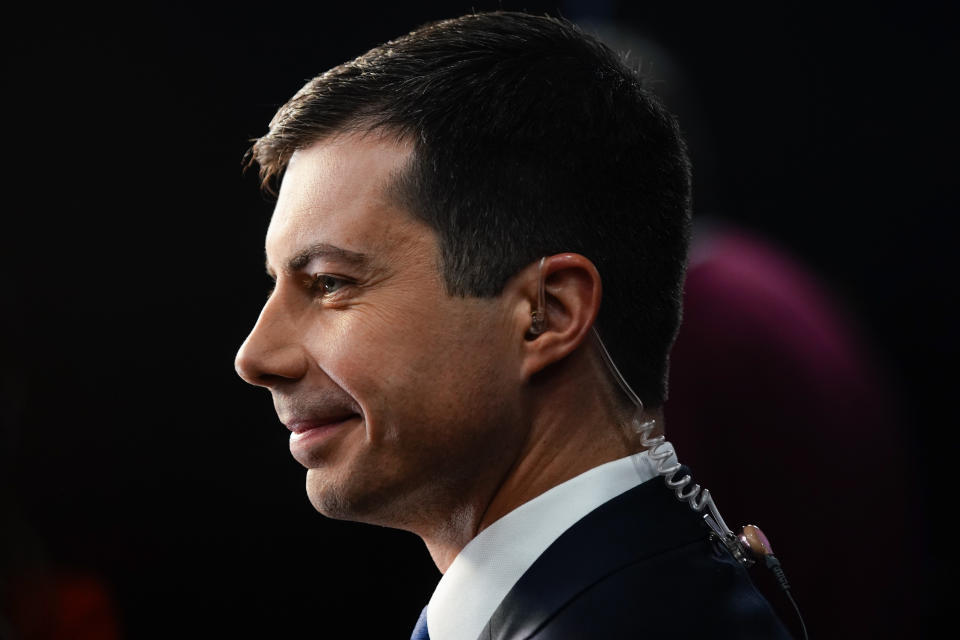Former presidential contender decries Democrats' 'huge missed opportunity' to hammer Trump on foreign policy

WASHINGTON — Shortly before the Democratic debate began in Atlanta Wednesday night, international relations scholar Stephen Wertheim tweeted a prediction. “Tonight I look forward to the usual five to ten minutes of debate on foreign policy by the most powerful nation on earth, with roughly 200,000 troops deployed overseas,” he wrote.
The prediction was not incorrect. Amid an impeachment scandal that focuses in large part on President Trump’s foreign policy, the subject was relegated to a bit player in the Wednesday night debate.
To be fair, the fifth debate of the Democratic presidential primary was a mercifully short two hours, a respite from the seemingly endless affairs that marked earlier stages of the contest. Still, there was plenty of time to talk about Medicare for All and reviving the Obama coalition. There was markedly less talk about America’s place in the world, and how that place can be restored.
And yet according to an analysis by Bloomberg, the fifth debate had the most foreign policy discussion of the primary season, with 18 percent of words devoted to the issue, with another 2 percent devoted to gun control. That means that a full 80 percent focused on domestic affairs. And in some of the previous debates, foreign policy was barely discussed at all.
Not on the stage in Atlanta on Wednesday night was Rep. Seth Moulton, the 41-year-old Democrat from Massachusetts who made foreign policy a cornerstone of his now-ended bid for the Democratic nomination. Having served four tours of duty in Iraq and risen to the rank of captain in the Marine Corps, Moulton declared for the presidency last April. He ended his White House campaign four months later, having failed to gain the attention of either voters or funders in the crowded field.
Moulton instead hosted a fundraiser at Lost and Found, a downtown Washington bar, for his political action committee, which supports candidates for public office with military and foreign service experience (as well as promising “next gen” leaders, as one Moulton aide calls them). The room was crowded with a young, diverse crowd that appeared to share Moulton’s conviction that the most powerful country on earth must always be vigilant about how it wields that power abroad.
“It’s a huge missed opportunity,” he lamented.

Marie Harf, who worked on the Iran nuclear deal for the Obama administration and now runs Moulton's Serve America political action committee, added that “given how disastrous the Trump presidency has been for America’s interests and values abroad, Democrats running for president have to more aggressively make the case not just for why he’s so bad but also for why we would do better.” Harf urged candidates to articulate “what a strong and smart foreign policy would look like” while avoiding “nods to whatever doctrinal talking point is most en vogue at any given moment.” Without saying it, she seemed to yearn for the kind of vision then-Sen. Barack Obama articulated during his 2008 presidential campaign. Then, as now, much of the world recoiled from the man in the White House, with George W. Bush widely criticized for his conduct of wars in Afghanistan and Iraq.
But despite Trump's lack of popularity with many world leaders, in Europe in particular, none of his opponents have truly articulated what a post-Trump world order would look like. Would it still be led by the United States? And would such leadership involve the use of force? How will we defend allies against a bellicose Russia? How will we come to terms with China’s massive Belt and Road project in Africa and Asia?
As Moulton pointed out in conversation with Yahoo News, any frank discussion of presidential power has to acknowledge that the office is invested with far more capacity to freely conduct foreign affairs than domestic ones.
“Everyone’s talking about health care. Well, at the end of the day, Congress is going to decide health care — not the president.” The same could be said of gun control, climate change and economic inequality, all issues that have by and large dominated the Democratic debates thus far. If these were, after all, within the purview of the president, Obama would have dealt with them definitively years ago.
“Joe Biden and Tulsi Gabbard are the only ones who talk about foreign policy,” Moulton said of the presidential candidates, referring to the former vice president and sitting congresswoman from Hawaii.
Although the executive branch has steadily arrogated power from Congress, that has come largely in the ability to wage war: George W. Bush’s blank check to conduct what he deemed the global war on terror, for example, or the Obama-era drone program in regions rife with Islamist extremism. The drone war went on for years and killed hundreds without an explicit endorsement from Capitol Hill.
Moulton said before the debate began that it was “frustrating” that those Democrats failed to grasp that, in his estimation, Trump was most vulnerable as commander in chief of the military.

“This is where Trump is most vulnerable,” Moulton said. “This is where he has failed the worst. That’s why the impeachment inquiry is all about foreign policy.”
Moulton steadfastly rejected the notion that Trump should be credited for preventing a major terrorist attack on American soil or for the resent assassination of ISIS leader Abu Bakr al-Baghdadi. “His retreat from Syria has undermined our credibility around the globe,” Moulton added. “He has no plan to confront China. He has alienated our allies in NATO.”
Moulton declined to say whom he would endorse, though he praised Biden, who “has the most experience by far.” Some of that experience involved working on Ukrainian security issues for the Obama administration. Ukraine is, of course, at the center of the impeachment inquiry now being conducted by the House of Representatives
Pete Buttigieg came in for qualified praise. He and Moulton share many traits: youth, ambition, Harvard. “I admire his service,” Moulton said. He then paused for a full seven seconds. “Making decisions as a leader is very different,” he finally offered.
If that wasn’t especially kind, the South Bend, Ind., mayor would soon be witheringly deemed a “local official” by Sen. Amy Klobuchar.
And the worry about “isolationist strains in both parties” was quite obviously Moulton’s way of tagging both Trump and Gabbard with a term no foreign policy expert ever wants to entertain. Gabbard, who served in Iraq, said her administration would cease “fighting regime-change wars that undermine our national security.”
_____
Download the Yahoo News app to customize your experience.
Read more from Yahoo News:
Rebuilding Paradise: A year after the Camp Fire, one couple finds healing in starting over
Key Democrat: House needs to 'keep this simple' in crafting impeachment articles
As Supreme Court weighs DACA, Trump pushes fiction about 'hardened criminals'
PHOTOS: 10 bronze statues of inspirational women in NYC by Statues for Equality"




